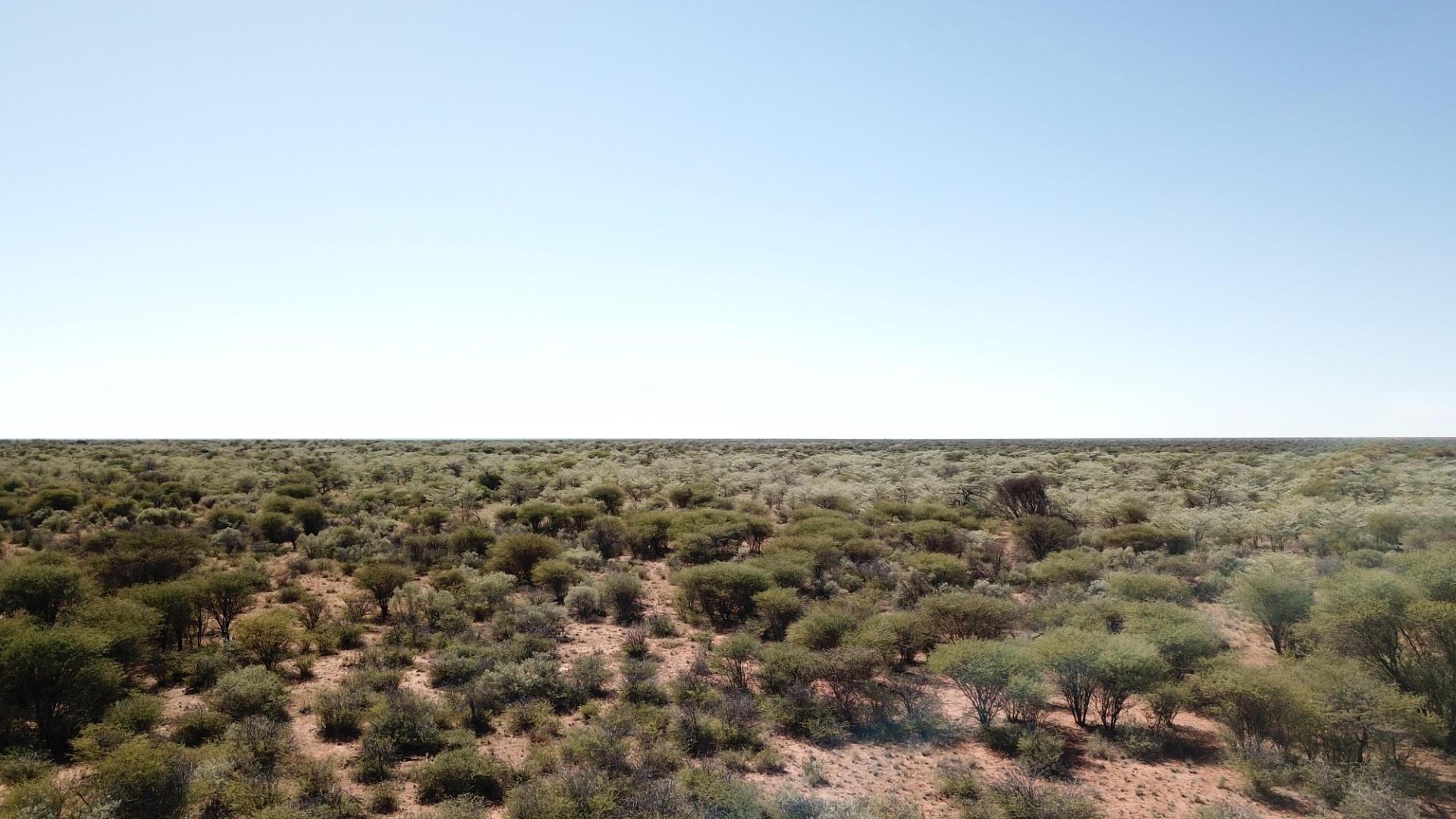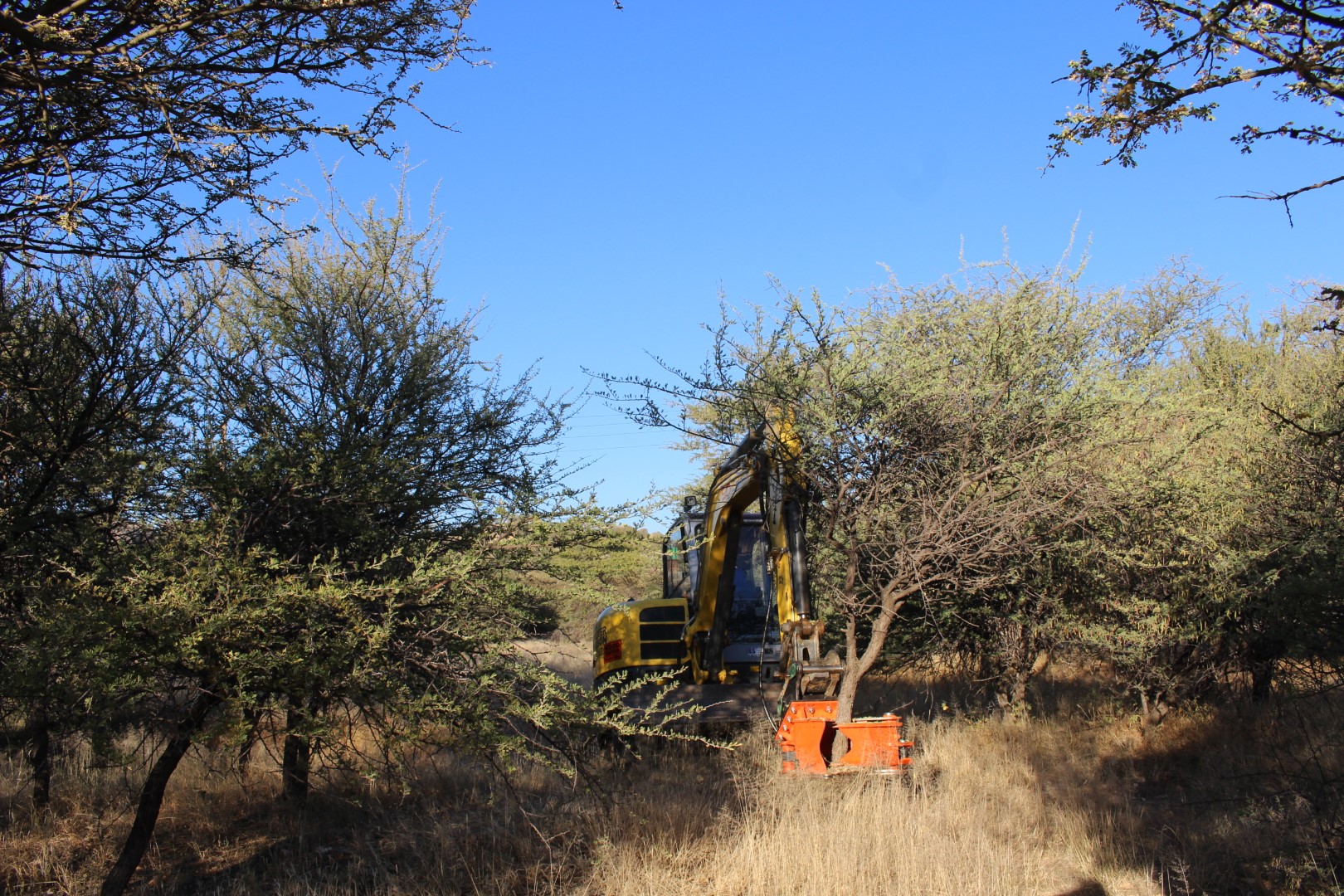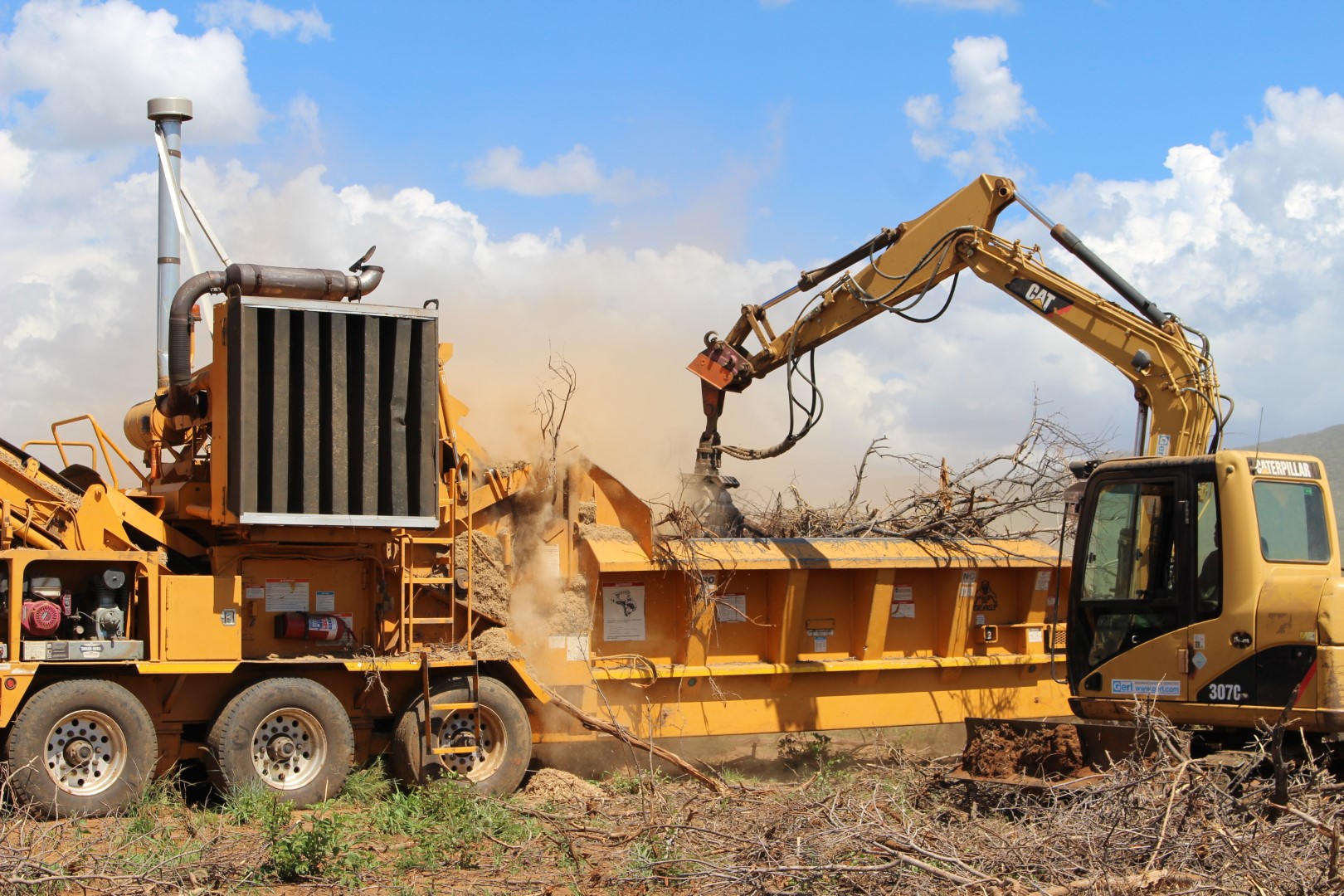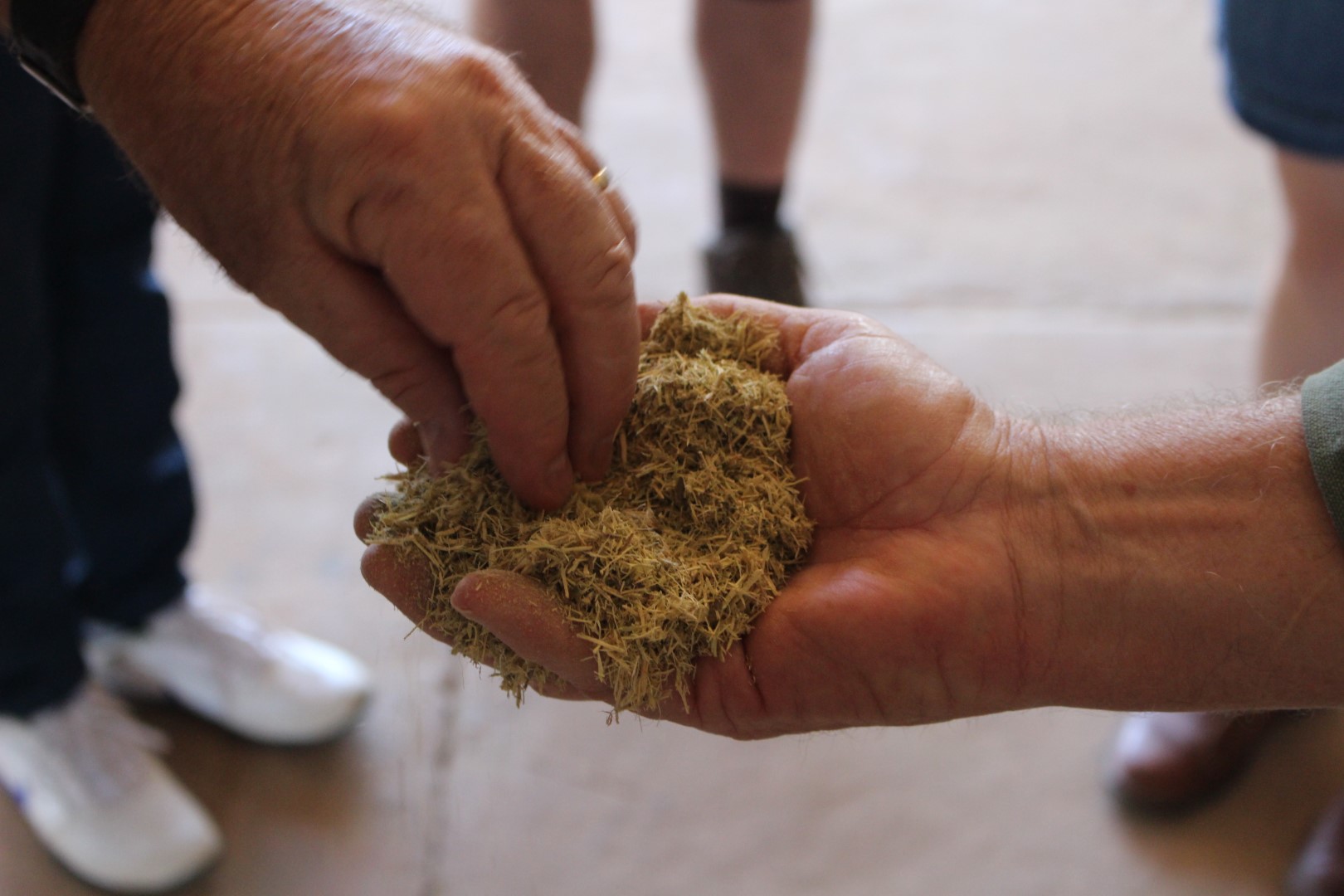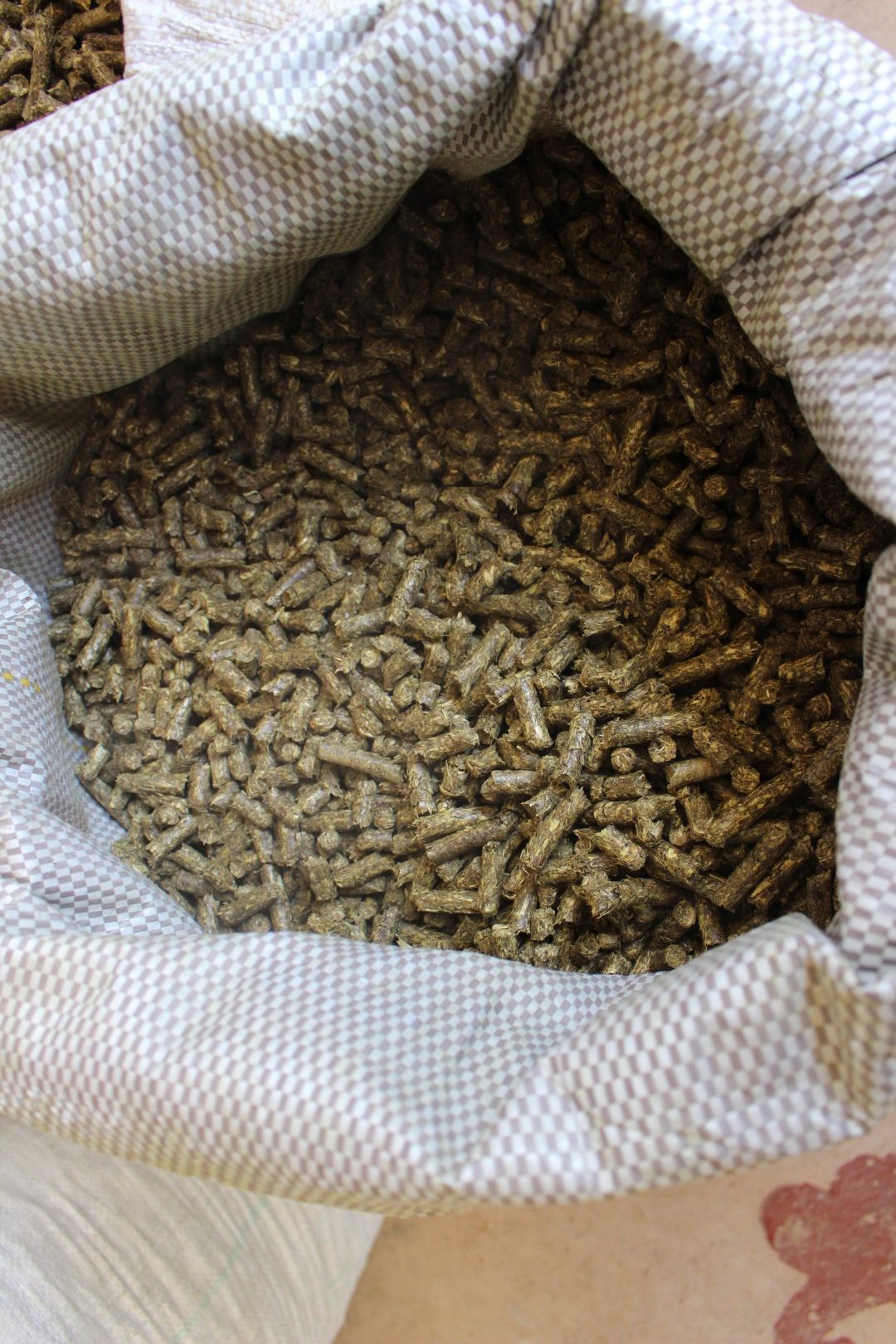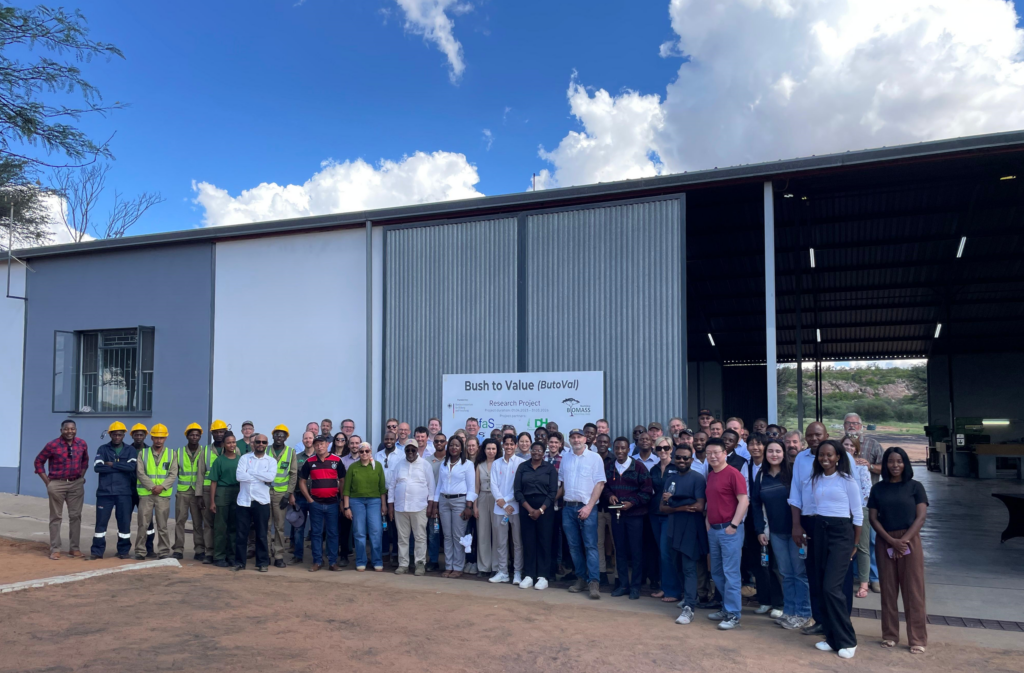Development and expansion of sustainable value chains for the utilization of invasive bush biomass for the protection and restoration of savanna biotopes in Namibia. (ButoVal)
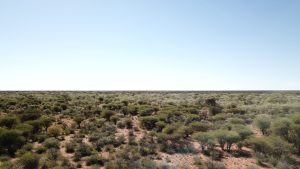
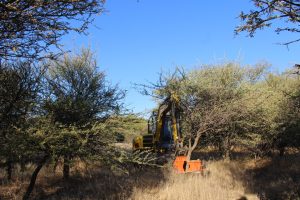
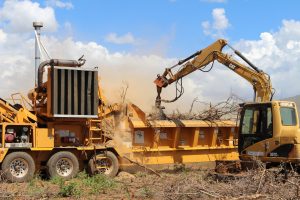
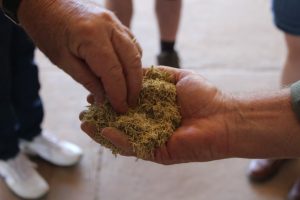
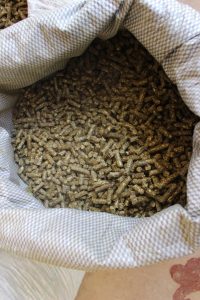
Partner country:
Namibia
Thematic focus:
1. Land Management (priority 5)
2. Resource efficiency and circular economy (priority 1)
3. Climate protection / energy efficiency (priority 3)
Funding volume:
1.865.040 EUR
Project duration: 36 months
(01.04.2023 – 31.03.2026)

News
NBC News: PROGRESS TAKES SHAPE IN OTJIWARONGO BIOMASS POWER PLANT
Background of project
The issue of bush encroachment emerged in the 1950s as a consequence of extensive cattle grazing, disturbing the delicate ecological balance of the Savanna land in Namibia. The excessive spread of bush species, especially native Acacia species like the blackthorn acacia (Acacia mellifera), has become a serious concern. Official records show that bush encroachment has already claimed over 40 million hectares of land, resulting in approximately 400 million tons of biomass growth annually. These invasive bush species are native to Namibia, but their unchecked spread has permanently disrupted the natural balance between bushes and grasses in the Savanna ecosystem.
Social, environmental, and economic impacts
Bush encroachment is a pressing environmental issue in Namibia that is causing significant social and economic repercussions. Over the past few decades, agricultural productivity has plummeted by two-thirds due to this phenomenon. It not only impacts cattle grazing but also disrupts other vital land functions like tourism, wildlife observation, and traditional, small-scale agriculture within the Savanna ecosystem. This impacted the vulnerable native farmers who rely on the Savanna for their livelihoods, which led to social and economic problems.
Apart from its economic impact on grazing land for cattle, bush encroachment poses a serious threat to Namibia’s biodiversity and water balance. The scarcity of grass has caused a significant decline in large grazing animals, such as elephants, giraffes, and cheetahs, as they heavily rely on bush biomass (BB). However, the impenetrable nature of the encroaching bushes hinders their feeding and behavioral patterns. This encroachment also hampers access to water sources, making it increasingly challenging for both grazing and wild animals to survive, particularly in the drier southern regions.
Aims and goals of project
The ButoVal project aims to address the issue of bush encroachment through optimized biomass harvesting and processing techniques, establishment of biomass industry parks (BIPs), and development of a sustainable aftercare mechanism. The goals include developing efficient biomass harvesting methods, creating processing machines suitable for local conditions, optimizing resource consumption, reducing greenhouse gas emissions, and implementing capacity building programs. The BIP will serve as a model for resource-efficient and green-business investments, involving German SMEs in affected Namibian regions.
News
ButoVal project – restoring savannahs in Namibia
The consortium and guests at the inauguration of the ButoVal bush utilisation plant in front…

